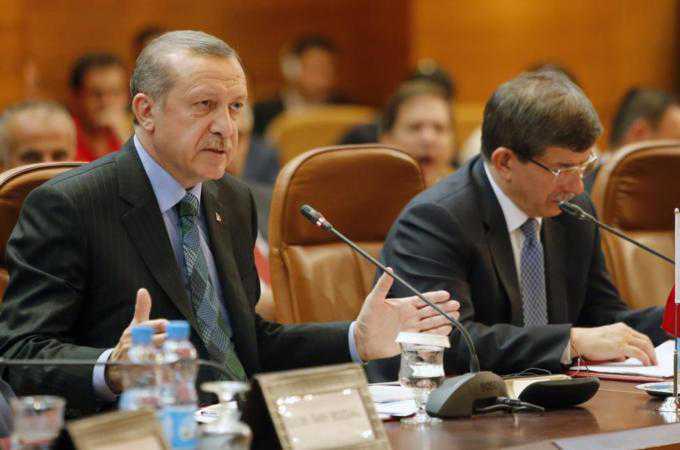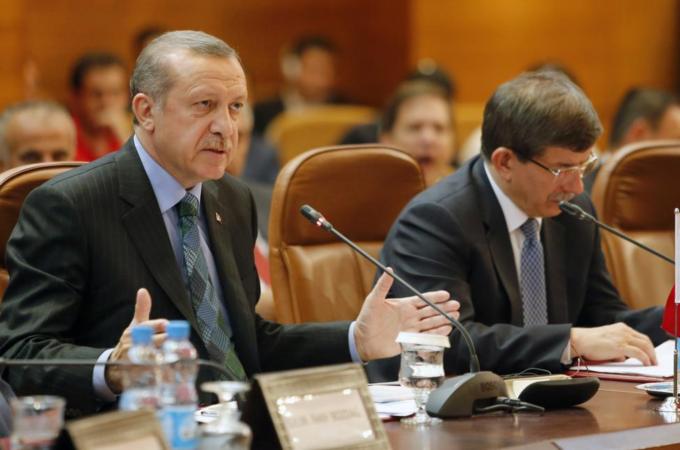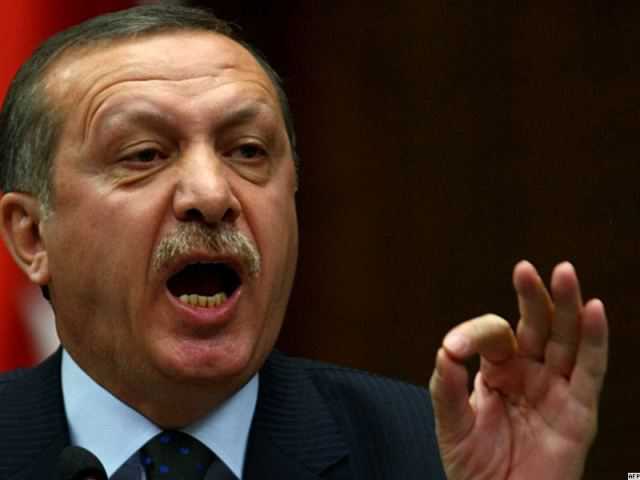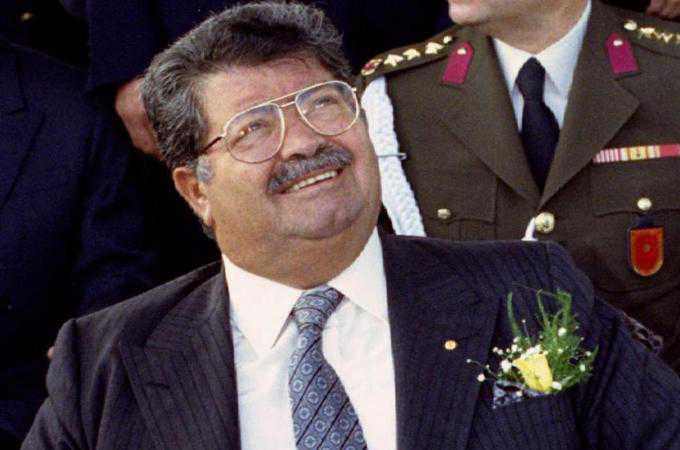Often cited as a model for Arab Spring countries, Turkey is marked by a massive divide between rich and poor as well as heavy state repression of labour unionists, journalists, students and Kurdish nationalists
Alp Altınörs
In the Arab world, especially in Tunisia and Egypt, the so-called “Turkish model” has become one of the main propaganda slogans of reactionary forces.
The Nahda government in Tunisia and the Muslim Brotherhood in Egypt seem to believe that the success of Erdogan’s Justice and Development Party (AKP) in Turkey can give them the hope of success and the popularity that they themselves are losing.
The economic realities hidden behind this glossy image of Turkey give a different image, however. It is true that the Turkish economy experienced a certain economic growth under the government of Erdogan—GDP grew between 2002 to 2012 by annual average of 4.9 percent (with the exception of 2009, in which GDP fell by 4.8 percent). In 2012, however, the growth rate dropped to 2.2 percent.
Plunder of imperialist finance capital
The main force behind this growth has been foreign capital. According to the figures of the Central Bank of Turkey, Turkish imports that amounted to $36 billion in the period 1984-2001 leaped sevenfold to $281.4 billion in the period 2002-2012.
Net capital inflow to Turkey grew at the same rate, from $65 billion in the period 1980-2002 to $484 billion in the period 2002-2012.
These figures show the level to which the Turkish economy has been integrated into the capitalist world economy during the Erdogan governments.
Foreign capital came to Turkey basically for two reasons: firstly because of “hot money”, the money-capital invested in state bonds, credit, and stock market shares; and secondly because of direct capital investment, which came to buy privatised state enterprises and assets. All in all, direct capital investment accounted for less than 20 percent of total capital inflows during that period.
Central Bank data shows that between 2002 and 2012 —that is, during the Erdogan period—total revenue transfers from Turkey to foreign countries amounted to $120 billion, 78 percent of which represented interest transfers.
That is to say, during the past 10 years, imperialist finance capital has effectively plundered the country, taking away $120 billion from the total surplus value created by the labouring masses of Turkey—$93 billion in debt service alone, although economists don’t focus on this acute form of robbery.
Dictatorship of the top 0.5 percent
An analysis of income distribution draws an even bleaker picture of the socio-economic situation in Turkey. Data from the recent survey of the Ministry of Family and Social Rights showed that close to 40 percent of Turkish society lives at, or below, minimum wage, set at 773 Turkish Lira per month ($1 equals approx.. TL1.79).
In addition, 6.4 percent of Turkish families live on less than TL 430 a month, a level that brings hunger and malnutrition. On top of these two segments, 23.1 percent of Turkish families live with a monthly income in the range of TL 815-1,200, or just above minimum wage.
Together these three segments make up to 61.6 percent Turkish society, a bit less than two thirds of the country.
‘Middle class’ families represent the bulk of the remaining 38.4 percent of the population. These are classified as families that earn an income that lies between TL 1,200 and 5,500. To be exact, this segment comprises about 37.3 percent of the population.
That leaves a tiny segment of society, which represents roughly 1.2 percent of the total population of Turkish families. This segment comprises high-income families earning more than TL 5,500 per month.
The majority of the families in this top category could be classified as “upper middle class” families, although a monthly income of TL 5,500 is much lower than the level need to classify its owner as bourgeois in Turkey. The real bourgeois in Turkey represent only a fraction of this already tiny segment.
Data released by the Banking Regulation and Control Council (BDDK) suggests that the bourgeois class in Turkey represents a mere 0.5 percent of the population. According to BDDK data, the largest 0.5 percent of the bank accounts held in Turkish banks own 63 percent of total money deposited in all accounts.
At the same time, 97.5 percent of all accounts have less than TL 50,000 deposited in them. Bank deposits are better measures of accumulated wealth than income, and thus we can safely say that 0.5 percent of Turkish society monopolises two thirds of the country’s wealth now.
AKP not only increased social inequality in Turkey, it opened the doors for rich Islamists to enter this top 0.5 percent club, or the bourgeoisie of Turkey.
Prior to AKP’s ascendance to power, the ruling generals used to deny Islamists entry into this club of super-millionaires. Now Islamist businessmen enter this stratum with ease, and obviously their entry has not changed the character of this club.
As for the poor, the government seems now to make do with redistributing a tiny portion of the national resources among them—mind you, not as a right, but as a de facto bribe that one receives when he or she votes for AKP.
Unemployment
In 2001, the official unemployment rate hovered around 10.3 percent. This was the year of the big economic crisis in Turkey. Since then—that is, during the 12 years of AKP rule—unemployment never fell below 9.5 percent, a level that it now maintains.
Official unemployment rates are notoriously unreliable, however. Labour unions, for example, estimate unemployment at 15 percent, while youth unemployment is estimated at 23 percent, as it is growing at much higher rate than average unemployment in society.
The point to emphasise here is that while Turkey managed to maintain an economic growth rate of roughly 5 percent a year during the past decade, this failed to push unemployment down in any reasonable way. Regardless of which unemployment statistics you take, Turkey is still hovering around the unemployment rate of the crisis year of 2001.
Growth has, in other words, been coupled with little social benefit, and the reason behind this goes back to its immensely exploitative nature, as a worker needs to do the work of three to keep his or her job.
The deterioration in labour rights in Turkey helped defend this exploitation. Factory workers are forced to stay away from labour unions, paving the way for “subcontracting” to become the dominant form of work relations.
In a workforce of about 10 million workers, only 0.7 million are members of a labour union. The size of the workers’ segment that has the right to make collective contracts is even smaller. During AKP’s rule, the subcontracted part of the workforce (called ‘taşeron’ workers in Turkish) grew in fact from 387,000 to 1.6 million workers.
Erdogan’s government supported this transformation and tried to boost it more than once. It amended, for example, the labour law to legalise many forms of “lean” and “flexible” work. Taşeron workers are practically prohibited from unionising, and this situation erodes the very basis of social opposition.
Turkish farmers are faring even worse; their production costs reach nearly the same level as their income and many of them have quit farming, leaving the villages to join the vast unemployed population of the cities.
The repression behind the growth
AKP government utilises harsh repression to maintain this high level of inequity and exploitation.
Turkish prisons contain nearly 10,000 political prisoners. They come from different backgrounds—socialist, Kurdish, Islamist, and ultra-nationalist. Many of them were sentenced to prison under anti-terror laws.
The very diversity of these prisoners exposes the political role of these laws and the repression that they seek to deploy. One third of the people imprisoned worldwide on the basis of “anti-terror laws” are in Turkey, showing how relatively easy it is to convict people for terrorism under AKP rule.
Freedom of speech has also suffered from AKP’s repression. According to the Platform for Solidarity with Imprisoned Journalists, 70 journalists are imprisoned in Turkey today. The Committee to Protect Journalists (CPJ) and Reporters Without Borders (RSF) thus declared Turkey a “world leader” in imprisoning journalists. The government, on the other hand, refuses to admit that these journalists were imprisoned for their oppositional journalism, and insists on classify them according to the laws that were used to convict them, as “terrorists.”
Most of the convicted journalists belong to either the left or the Kurdish national press. Mainstream media columnists and TV broadcasters managed to avoid this fate, at least until now. Nevertheless, they are not immune to government intimidation. They lose their jobs whenever they cross the line in criticising the government.
Ece Temelkuran’s case is one of the most notorious examples of this policy of media intimidation. Judging that Temelkuran crossed the line, Erdogan pressured “Milliyet,” one of Turkey’s main newspapers, to fire Temelkuran despite her fame and presence in the international press.
Temelkuran’s fate does not represent an isolated case. Many big media writers who oppose AKP’s government lost their jobs, as the party continues to “clean” the public sphere from any progressive criticism of the government.
AKP also repressed the right to strike and unionise, as mentioned before. In the past ten years, the government banned numerous labour strikes and waged a systematic war against many organised labour sectors.
Last year, for example, the government tried to pass a law prohibiting strikes in the air transport sector. Although the resistance of the air transport workers succeeded in impeding their general plan, Turkish Airlines still managed to get the government support necessary to fire 300 of its workers.
The air transport sector is but one of the many sectors that came under AKP attack. Public employees, including schools and hospitals’ workers, are denied the right to strike, for example. The police also raided the offices of the unions of public employees many times. Today there are 125 members of the Confederation of Public Sector Employees (KESK) in prison on charges of, again, “terrorism.” It is not hard to see how Turkey managed to score one of the highest rates of convicted “terrorists” in the world.
Naturally, a government that goes that far doesn’t spare student activism from its repression. About 850 student activists are currently in prison for protesting in favour of free education or against fascist repression and the oppression of the Kurdish people.
Many of them have been condemned to heavy prison sentences, ranging from six years to life sentences. In indicting them, the state put forward “evidence” of them committing “criminal activities” like participating in demos, shouting slogans, or even reading the Communist Manifesto.
The AKP government has been the prime oppressor of the Kurdish people too. Although AKP has recently signaled their intention to change their policies towards the Kurdish people—as they pushed for dialogue with Abdullah Öcalan, who is held prisoner on Imrali Island—that doesn’t mean that they have left aside their Kurdish oppression policy.
Education in Kurdish language is still prohibited; among political prisoners, 8,000 belong to the Kurdish movement; 1,500 young people from both sides died during the fierce war between the Kurdish popular guerilla and the army (a war that was directed by the AKP government).
The massacre of Uludere-Roboski village in 2011 was one of the worst atrocities of this bloody process. F-16 warplanes bombed a group of civilian Kurdish peasants who were engaging in border trade. This bombing left 34 peasants dead, mostly young people. Naturally, this triggered huge protests throughout the country. But while the government was clearly responsible, as it ordered the bombing, no one has been held accountable for this crime to so far.
The Sultanate transformation
Atrocious as it is, this level of repression and authoritarianism doesn’t seem to suffice AKP’s desire to monopolise power in the country. Erdogan has recently put forward a proposal meant to tighten his grip on all forms of state power, by proposing to change the constitution to transform the Turkish political system into a presidential system.
His proposal transfers most state powers to the president, rendering him nearly a sultan. It also gives the president the right to dissolve the parliament, elect half of the Supreme Court members, and veto laws approved by the parliament—in addition to government powers, of course.
His proposal is, in short, but an attempt to institutionalise a fascist police state, to be led by the AKP government. It is timely, coming as the balance of power in the country tips away during AKP’s rule from the military into the hands of the police. AKP has gradually come to rely more and more on its control over the police.
It’s been a long way since the AKP government struggled against the semi-military rule over the state machine. During their early beginnings, the AKP used to uphold the slogan “civilian supremacy.” They got the support of many liberal sectors who opposed military rule with this slogan.
But as soon as they managed to get a hold on state power, they used this power not to democratise the state, but to install a repressive regime of their own. The semi-military fascist regime that was led by the secular generals was eventually transformed into a civilian fascist regime led by the “moderate” Islamists.
Our people’s struggle for freedom and democracy thus continues, and the more the AKP-led, imperialist, economic exploitation proceeds, the more repression it requires, the more the people of Turkey resist their rule. Our determined resistance will pave the way to a popular rejection of their rule, one day.











